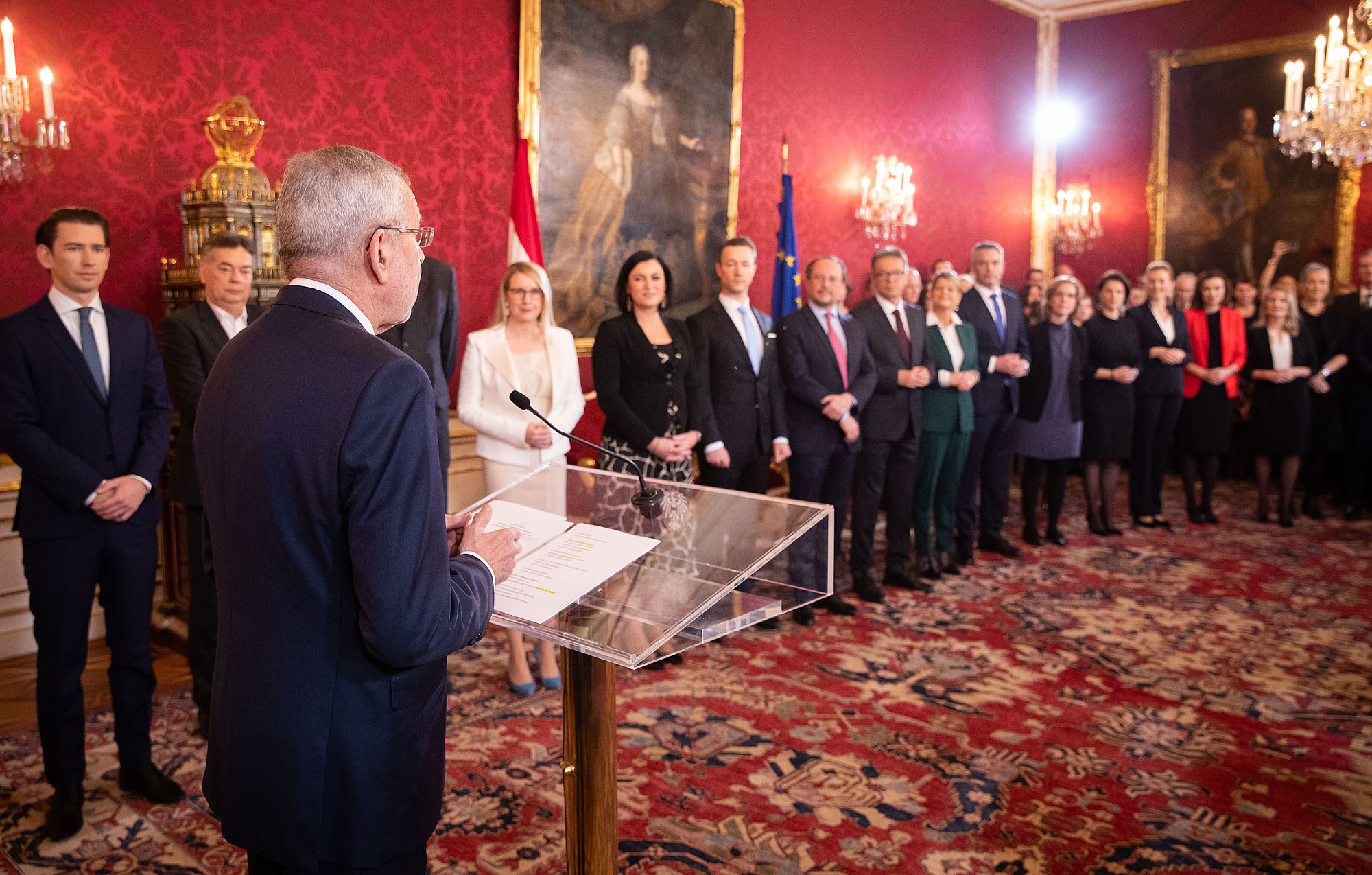
On the morning of May 9th, Minister of Agriculture Elisabeth Köstinger of the Austrian People’s Party (ÖVP) announced her resignation. Just a few hours later, her party colleague, Minister of Economics Margarete Schramböck, followed suit in a video statement. This brings the total number of changes of ministers in the governing coalition of the ÖVP and the Greens, to 14, two of which were changes of chancellor. In response to these constant changes, the opposition is pushing for new elections, but the ÖVP and the Greens plan to continue the coalition for the time being.
Köstinger was considered a close confidant of former ÖVP leader and chancellor Sebastian Kurz, who resigned from the government in the wake of a corruption scandal. When Kurz announced in early December that he would not return to politics, Köstinger surprisingly decided to retire from politics as well. However, at the request of Chancellor Karl Nehammer (ÖVP), she remained in her post for a transition period.
In her press conference, she beamed with gratitude for the experiences of 13 years in politics, saying that the last five years as minister had been “the hardest years, but also the most rewarding.” Her successor, Norbert Totschnig (ÖVP), has been director of the Austrian Farmers’ Union since August 2017, and was sworn in as agriculture minister on May 18th.
Margarete Schramböck had also been introduced into the then- governing coalition of the ÖVP and the right-wing FPÖ by Sebastian Kurz five years ago. Prior to that, she held management positions at companies such as Alcatel and was head of the mobile communications company A1. But unlike Köstinger, Schramböck had long been considered a candidate for resignation due to the failure of her highly anticipated initiative “Kaufhaus Österreich” (department store Austria). The initiative was supposed to become a digital “meta-platform” and regional competitor to Amazon, but failed due to gross technical problems and was discontinued after a little more than two months.
Instead of calling a press conference, however, Schramböck announced her resignation via a video message on Facebook. In the 5-minute video, Schramböck lists the achievements of her tenure, but does not elaborate further on the reasons for her resignation. Her successor, Martin Kocher (ÖVP), had been in charge of the ministry of labor since January 2021 as successor to Christine Aschbacher (also ÖVP), who resigned due to plagiarism allegations. Kocher was sworn in as the new minister of economy on May 11th.
Criticism of the ÖVP-Greens coalition came from the opposition, especially from the SPÖ and the FPÖ. “Game over for Turquoise-Green, “the SPÖ wrote in a dispatch, calling the federal government a “hoard of chaos, instability, [with a] lack of plan and serious mistakes.” Turquoise has been the color of the “new” ÖVP since Kurz. The federal secretary of the SPÖ, Christian Deutsch, said Austria was not served by the “constant exchanging of doorplates.”
For the FPÖ secretary general, Michael Schnedlitz, the resignations make it clear: “The black chaos days continue. The 14th reshuffle of the black-green coalition clearly shows the government’s final inability to act.” Black was the “old” color of the ÖVP before Kurz. He stressed that Austria is “in one of the most serious crises with the Ukraine conflict and the unprecedented wave of inflation.” For him, “only new elections can lead to clear conditions and stability in our country.”
